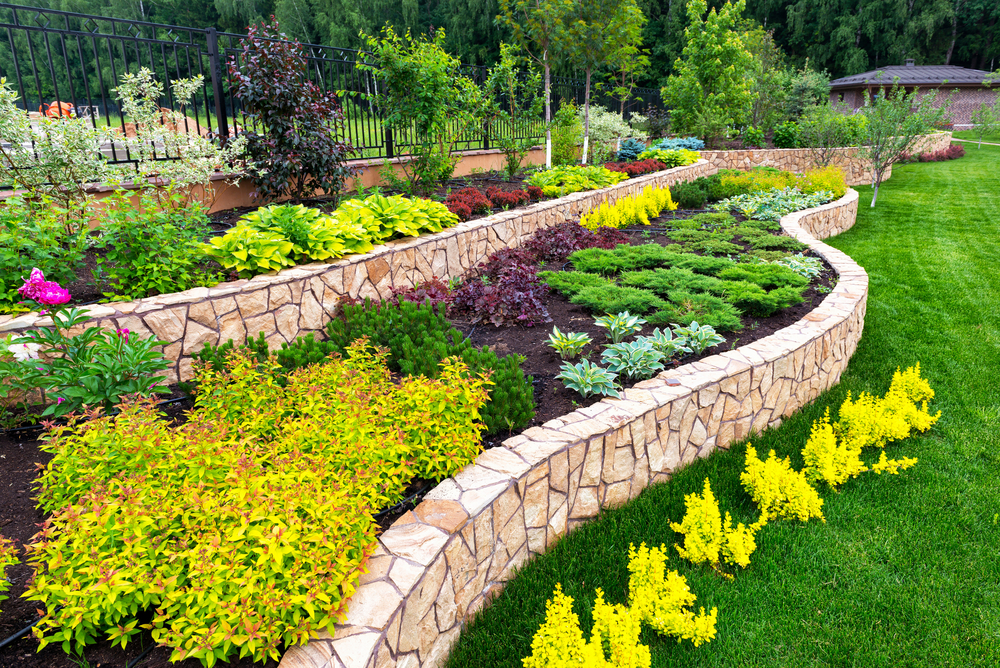Tips And Tricks On Landscaping That You Must Know
Mar 15
Close your eyes and picture your yard. Are you happy about what you see? If not, today is the day for change. This article will provide you with many tips and techniques, which can take your yard from junk to oasis in a short amount of time, and your budget won't be broken.
If you are a beginner to landscaping, examine the older trees on your property to ensure they are safe and are not falling down. In order to protect your home or other items on your property, you may want to hire a professional tree limber that can ensure the safety of the property.
If you plan to landscape your yard, be sure to do a good amount of research on the best types of plants for your area. Some grasses grown better in warmer regions, while others can survive a tough winter with ease. The same can be true for various bushes and trees.
It is generally a good idea to evaluate the sunlight that is available to you before you start landscaping. This way you can plan what sort of plants will go where so that they receive the optimal amount of sunlight. You don't want to have plants die because of too little or too much sun exposure.
Befriend your neighbors. You might be able to share costs when you rent equipment or buy large quantities of landscaping supplies together. Offer to help your neighbors with their landscaping project and they will probably help you with yours. Let people borrow your tools and talk about creating a common tool collection.
Whenever you are designing your own landscape, be sure and make use of stones and pebbles in your design. Decorative stones and pebbles add a nice contrast to the greenery supplied by your plants and can really enhance the look of your entire landscape. Just make sure to pick stones that compliment your landscape.
Before you get out the shovel and wheelbarrow, make a careful plan for your landscaping project. You really need to think about what your goals are before you begin. What will you be using this outdoor space for when it is completed? Is it for sitting quietly and reading a book or for entertaining guests? Knowing your goals before starting will help you to achieve your desired outcome.
When planning your home landscape projects, keep in mind that substantial savings can be found by purchasing outside peak seasonal periods. Purchase your trees, plants and mulch late in the planting season for the best sales. Wood, trim and building supplies for outdoor decks and improvements are often cheapest in the winter months since the demand is lower. If you have the ability to store supplies for a short while, you can save a bundle buying in the off-season.
A good landscaping project need not be limited to plants and flowers. For a low-maintenance, earthy look, consider incorporating rocks, water or wooden structures into your lawn, and garden designs. These elements are ideal for parts of the country with low annual rainfall. Many projects of this nature are simple, and can be completed without the help of a professional.
Before you embark on a large landscaping project, contact your homeowner's association, if you have one. Many neighborhoods have guidelines and specifications regarding what you can or cannot do to parts of your property that are visible to other neighbors. They can even force you to change things, if you are in violation of set rules.
Rather than purchasing plant seeds at a store, you may want to think of getting them online. There are many websites that not only offer these seeds for a discounted price, but they will also provide you with information on how to care for them. There are many kinds of seeds you can get on the Internet.
Before beginning a landscaping project investigate what it might do to your property tax bill. There are a number of projects that can greatly increase the value of your home, which will results in yearly payments via taxes on your landscaped yard. Be sure these costs are something you are willing to incur before you begin.
One of the keys to successful landscape design is to be completely honest with yourself about the time you are willing and able to dedicate to maintenance and plant care. If you design a space that requires labor-intensive plants and other materials, but have little time in which to tend them, you will ultimately end up disappointed.
As long as you use what you've read here and don't get outlandishly crazy, your yard should transform from your nightmare to a dream come true. It just takes some effort on your part, a little time commitment and a relatively small amount of money, as well as, continuing to learn throughout the process. Have fun and good luck!

